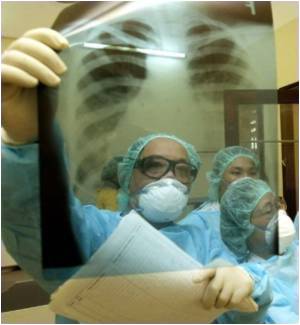Sex hormones could perhaps be used to beat a common cold virus, known as the rhino virus. A study at the University of Queensland’s School of Medicine at Princess Alexandra Hospital.

Given that RV infections are so common, there is surprisingly little known about immunity to RV in healthy individuals, the research team, led by Professor John Upham, wrote in the journal Respiratory Research.
The aim of the current study was therefore to investigate markers of both innate and adaptive immune responses to RV in peripheral blood mononuclear cells (PBMC) from healthy men and women. The study was performed in pre- and post-menopausal females as well as age-matched males.
“...because adaptive immunity to RV varies in relation to sex and age, it is imperative that these variables are considered in the design of future studies of RV infection and cellular immune function in respiratory diseases. Adult asthma is more common in women than in men, so failure to properly match asthmatic and control groups for sex and age may produce spurious outcomes. Our findings are relevant to improved understanding of host defence against RV and will need to be considered in the development of new treatments and vaccines for RV infection,” the authors said.
The researchers will further study the effects of hormones on the immune system, with long-term plans for development of a vaccine.
Research team members in the Lung & Allergy Research Centre, UQ School of Medicine, involved in the study included Mrs Melanie Carroll, Dr Stephanie Yerkovich, Dr Antonia Pritchard and Dr Janet Davies.
Source-Medindia












